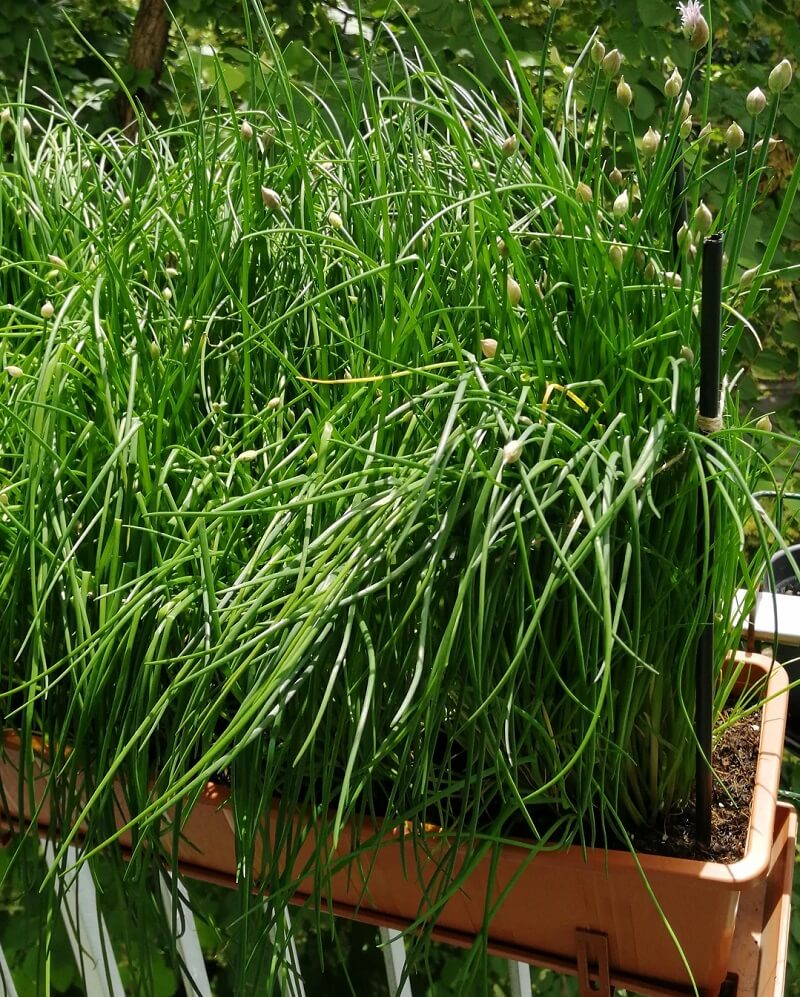Summer inspires homegrown produce and herbs like basil, oregano, thyme, and chives, but one Redditor may have taken growing chives to a whole new level.
"I made a big mistake …Turns out 6 Plants (4 in the planter you see in the picture and 2 in different pots) are waaaaay to much," they wrote above a photo of the plant in a post to a gardening forum. Despite cutting and thinning them every few days, the original poster has had to store Ziploc bags full of chives in the freezer. Now, they're asking for advice and recipes.

While using fresh ingredients from your garden is satisfying, the National Wildlife Federation says 50% to 70% of your yard should be native plants, including trees, bushes, flowers, and grasses. Native plants are adapted to your local region, meaning they require little watering and boost biodiversity.
Pollinators endure the most significant threats from non-native gardens, with fewer feeding and breeding grounds, exposure to pest and fertilizer chemicals, and harmful bacteria. Unfortunately, insufficient pollination results in losses of 3% to 5% of vegetable, nut, and fruit yields, according to Environmental Health Perspectives. Native plants help restore bird, bee, and butterfly populations for a healthier environment and adequate growth.
Meanwhile, transitioning to a native lawn could save you $225 annually on irrigation and $100 on fertilizer and pest management. Xeriscaping and buffalo grass, in particular, are water-conserving and low-maintenance options.
While the OP was wise to grow their herbs in pots instead of the ground, they can also successfully grow them indoors on a windowsill, preserving more space outside for native flora.
But what to do with all those chives? Fortunately, fellow Redditors offered some great tips. One user makes fresh garlic-and-herb butter using salt, chives, and other greens. "Mix it up to your taste and freeze whatever you can't use up in a week," they recommended.
Another said: "Let them flower and then make chive blossom vinegar."
The OP could freeze-dry the chives. Dehydrated or freeze-dried food can last 25 years with oxygen absorbers if kept in a low-humidity environment, Revolutionized reports.
A third commenter chops and dries herbs for use in the winter, writing, "I dry all my herbs and store them in small mason jars in the pantry." They also use the dehydrated herbs to refill their spice jars.
Join our free newsletter for easy tips to save more, waste less, and help yourself while helping the planet.









